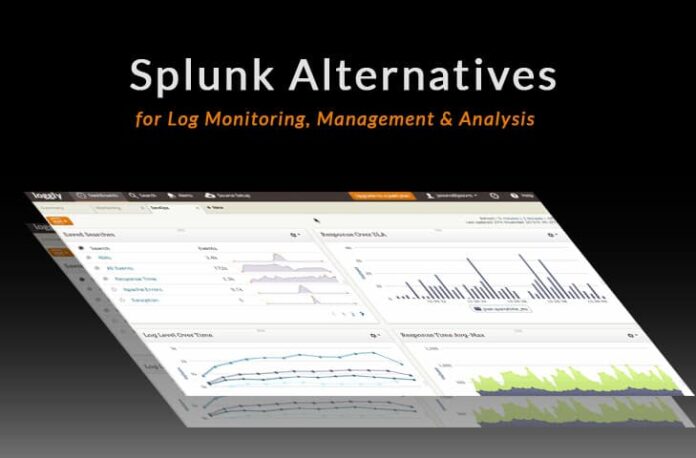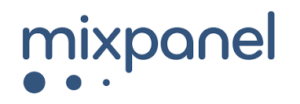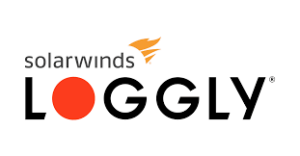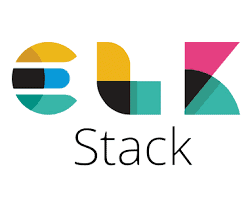This post will explain splunk alternatives. Splunk has actually been prevailing as the most popular & dominant log management solution. The logger whiz present for enterprise-grade logging management & SIEM has placed it the apparent choice for companies creating substantial data and deducing insights from them. However later on, the log management possibility has altered considerably. Emerging options and architectures such as microservices, IoT, container platform, and clouds helped application to assist in new options that are better enhanced for managing their log information.
What is Splunk ? Top 5 Splunk Alternatives In 2021
In this article, you can know about splunk alternatives here are the details below;
If you are trying to find such software which is better for some reason, you have actually crashed in the best location. You can find below the sloped down menu of alternatives for Splunk.
Top 5 Splunk Alternatives
Below are the leading 5 alternatives, which are as follow:
1. Mixpanel
It is also one of the popular log data analytics tools where it can help you to recognize the invalid data patterns to be dealt with. The easy web UI for viewing and managing occasions. ‘People analysis’ is one crucial function of Mixpanel, which keeps an eye on and manages historic log information of users. This, in turn, smooths the method of interacting with users by means of alerts. Also check tableau alternatives.
Few noteworthy functions are Bucket Testing, Versatile Data Visualization, Bookmarks, Annotations etc
Cost model: Encompasses basic free strategy with restricted performances, archiving data history span and also supplies enterprise-level customizable annual plan until 5+ years of information history archiving. The minimum prices starts from $150.
2. Loggly
A Saas log management solution that provides a thorough analysis of logs defining the complete facilities. One significant characteristic of Loggly is its agentless request intake service which permits direct transmission over HTTP/HTTPS or Syslog. It likewise supports the parsing of a big set of formats from various sources, including AWS, Java Backlog, Syslog source, Docker, Windows, and Linux logs. Besides the supported sources, Besides the user likewise can create custom-defined parsing rules for uncalled formats. It does not support an on-premise service.
Loggly has a vibrant field explorer, where one can browse, filter, and summarize logs on a single screen. With this performance, the user can work without having anticipation of querying syntax. The resultants are then converted into event signals for real-time updates. Being agentless, each log prompting application needs to be set up to delegate the logs to Loggly. Platform with dispersed architecture often requires making use of third-party options, which makes Loggly apt for little scale releases.
Cost model: Basic strategies vary from $79 each month, which offers up to 30 GB/month of utilization and relatively narrowed with standard functions than the enterprise-class, whereas the business plans range from $349/month.
3. Sumo Logic
Another option to Splunk is Sumologic. It includes the efficiency and benefit of an industrial SaaS platform with a free entry-level prepare for little jobs and hobbyists. As a special trait of application, it does not affect the infrastructure of your application. Searching and analyzing information logs in real-time is basic. You can quickly create and cluster data on the run. You can observe and envision past and real-time events. It helps to preserve security and compliance. Also check Cloud Computing.
Created conceptually as a “Splunk in the cloud,” the platform shares a lot of its other contender’s features, specifically making it possible for the search, refinement, and charting of mass quantities of log information. One of Sumo Logic’s main traffic points is its ability to establish baselines & actively inform administrators when the metrics modification after an occasion,
Price model: Sumo Logic uses a free plan with 0.5 GB/day (15GB/mo) log data intake and can be customized according to requirements with effective pricing.
4. LogDNA
LogDNA is another Splunk option which prevails to be the simplest log management tool, with an intention to combat significant restraints present in other log management solutions and easily scale together with an increase in log volume. Its support reaches cloud-based, on-premise, private cloud, and hybrid/multi-cloud by providing extensive feasibility.
LogDNA effortlessly fit all enterprise of any scale. Unlike other solutions, LogDNA needs nearly minimal onboarding and no setup on the delegation of logs. With LogDNA, you can do easily index logs, filter, and tail the required sections in an effective way. With the supporting custom-made views and graphs. On the run, you can develop custom dashboards or offer custom-defined notifier logs to clients. With all due aspects, it is further security compliant.
LogDNA follows a prices design without any data caps however depending on usage statistics.
Cost model: Monthly Plans ranging from $1.50 per GB to $3 per GB each month. To get going, the user can get 14 days of complimentary trial on a desirable plan.
5. Elastic Stack
The Elastic Stack (also described as ELK stack) has actually been a leading open source log management option. It is a good alternative to Splunk.
It consists of 4 significant modules:
- Elasticsearch: Highly scalable search and analytics engine.
- Logstash: Log processing part which avenues inbound logs to ES.
- Kibana: Data visualization tool for the logs recorded.
- Beats: Also called information shipped for flexible search.
A routine stack supplies all of the tools needed to perform, process, and view log data using a web-based UI with binary reliance as java. The Elastic stack is an open source tool & stands stable with an active developer community supporting throughout, a wide variety of plugins, & extensive formats back.
On the other side, resembling the Elastic Stack can be rather complex than other tools in the market. It is highly distributed and needs a scaled encouraging configuration setup to work as a full-fledged service. It gets along best for geographical data and records high compression of memory storage. Also check agile workflows.
Cost model: The premium variation of Elastic stack provides access controls, statistical notifiers and reporting options in addition to the standard functionalities of the complimentary version. However, it is also expensive to carry out rates of practically $2,000,000 to run at an enterprise scale which has a period stretch of about three years.








